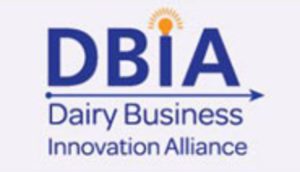
A Wisconsin Senator is praising the U.S. Trade Representative for a recent agreement with Chile but says more trade agreements and strong enforcement are needed.
Tammy Baldwin sent a letter to USTR Katherine Tai saying market access to Chile will allow the sale of many Made in America cheeses and meats using common names. Baldwin calls the agreement a significant step forward for the agricultural sector that will provide an opportunity for U.S. producers to grow their businesses.
Baldwin urged Tai to rigorously enforce the trade deal once it takes effect, and to dedicate resources ensuring no bilateral trade discussion is concluded without protecting common product names and terms.
Baldwin’s letter says the United States needs to establish a clear and consistent policy of proactively defending the market access of producers of these products, pointing out how multiple European Union trade agreements have geographical indication restrictions on common food and beverages names that have veered far off from their intellectual property origins. She says geographical indicators serve as market access nontariff trade barriers, and the U.S. must treat them as such.
Below is a copy of Senator Baldwin’s letter sent this week to USTR Katherine Tai:
Dear Ambassador Tai,
As you work with our trading partners around the world, I write regarding opportunities to ensure that U.S. dairy and meat producers continue to be global leaders. Trade and access to export markets are critical to Wisconsin’s dairy and meat industries, supporting American farmers and our rural communities, as well as food manufacturers and entire supply chains. For that reason, ensuring meaningful benefits and opportunities for American agricultural producers must be a top priority.
I commend you on the recent agreement that the United States and Chile have reached regarding market access to Chile that will allow the sale of many Made in America cheeses and meats using common names. This agreement is a significant step forward for the agricultural sector and will provide an opportunity for U.S. producers to grow their businesses and supply new customers with specialty cheeses and meats with recognizable names like “parmesan” and “salami.” This agreement will also help protect market access for U.S. cheese and meat products in this important free trade agreement partner market.
As a Senator representing Wisconsin—a state renowned for its dairy and meat industries—I am particularly appreciative of your work to secure common food names with this agreement. Our farmers and processors are vital to our state’s economy, with the dairy industry contributing $45 billion and the meat processing industry contributing $34 billion to Wisconsin’s economy annually. The assurance that American producers will continue to be able to use many established terms for cheese and meat products in Chile is a testament to your efforts in safeguarding our nation’s agricultural interests.
Given the critical role that access to international markets plays for American producers, I urge you to ensure that this agreement is rigorously enforced once it goes into effect. Protecting their market access and recognizing common food names are essential not only to the economic well-being of our agricultural sector, but also to maintaining fair competition and consumer choice.
I also request that you continue this important work in additional international markets by establishing a comprehensive USTR policy dedicated to proactively protecting U.S. exporters’ market access rights to export products using common food and beverage names. Resources should be dedicated to ensuring that no bilateral discussion is concluded without protecting these common terms. Your leadership and your team’s diligent work on this issue has delivered a major victory. To build on the momentum of this success, the United States needs to establish a clear and consistent policy of proactively defending the market access of producers of these products. As we’ve unfortunately seen from multiple European Union trade agreements now, geographical indication restrictions on common food and beverages names have veered far off from their intellectual property system origins and now operate in global markets as market access nontariff trade barriers. The U.S. must treat them as such.
Thank you again for your commitment to strengthening our trade relationships on behalf of American agricultural producers. Expanding market access and securing recognition of common food names for our world class dairy and meat products is crucial for Wisconsin producers who compete on a global stage. I look forward to seeing the positive impact of this agreement and others on Wisconsin farmers and processors.
cc: Secretary Thomas Vilsack
Sincerely,
(Senator Baldwin)
You can now read the most important #news on #eDairyNews #Whatsapp channels!!!
🇺🇸 eDairy News INGLÊS: https://whatsapp.com/channel/0029VaKsjzGDTkJyIN6hcP1K




















